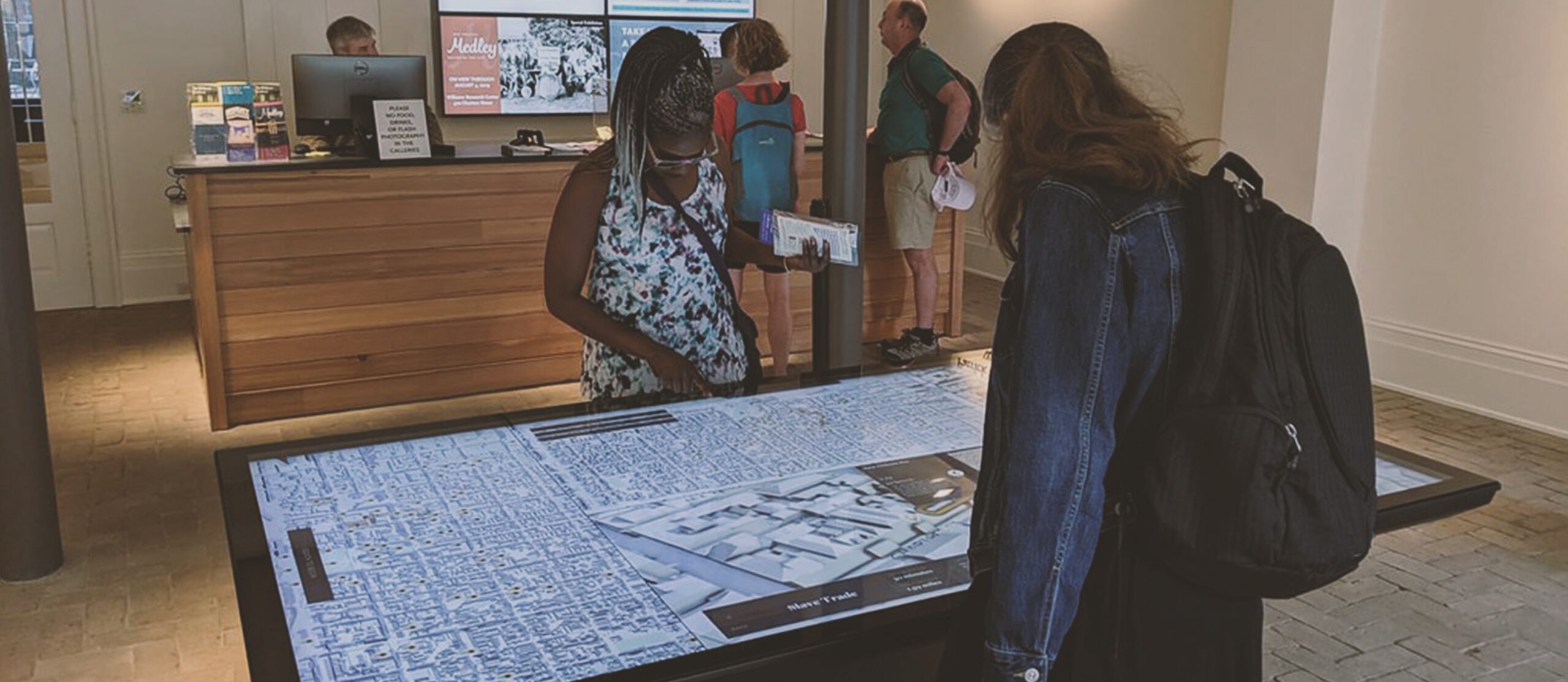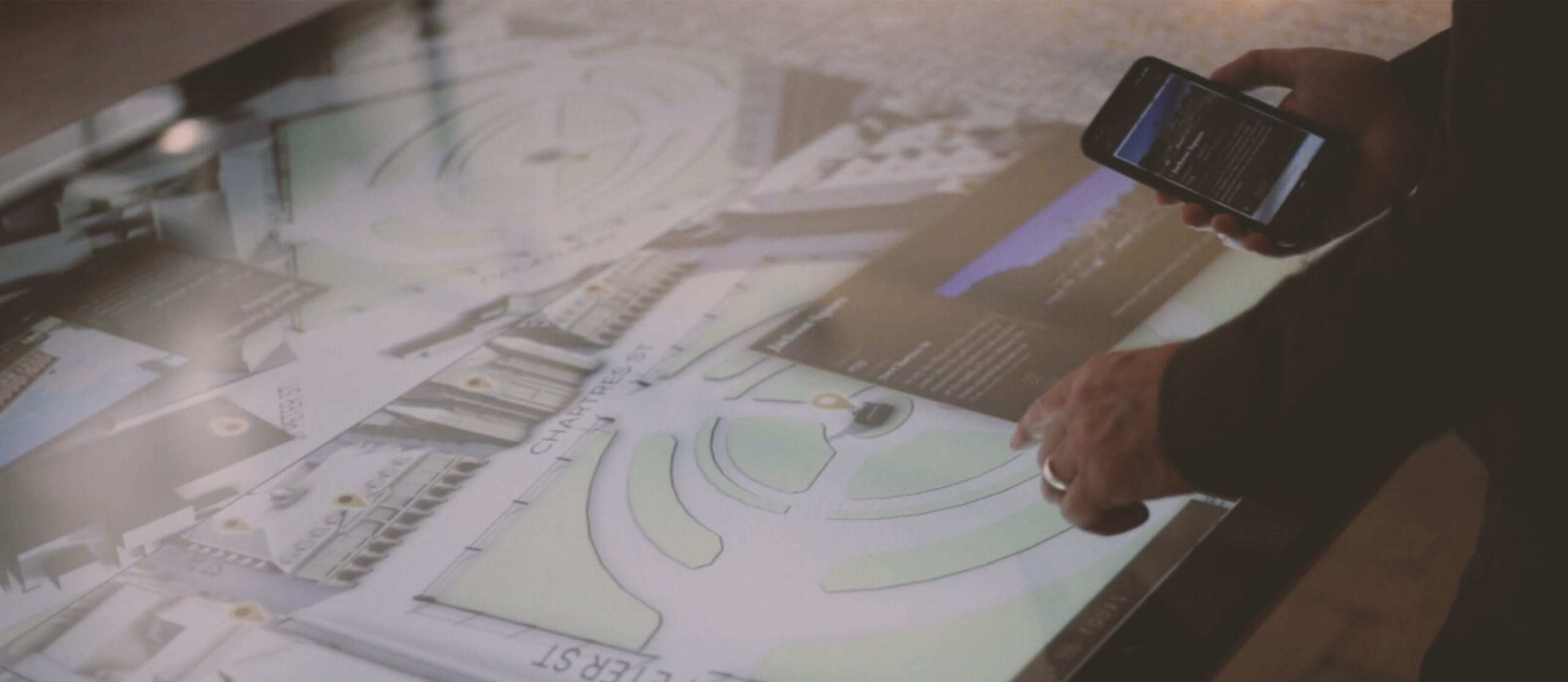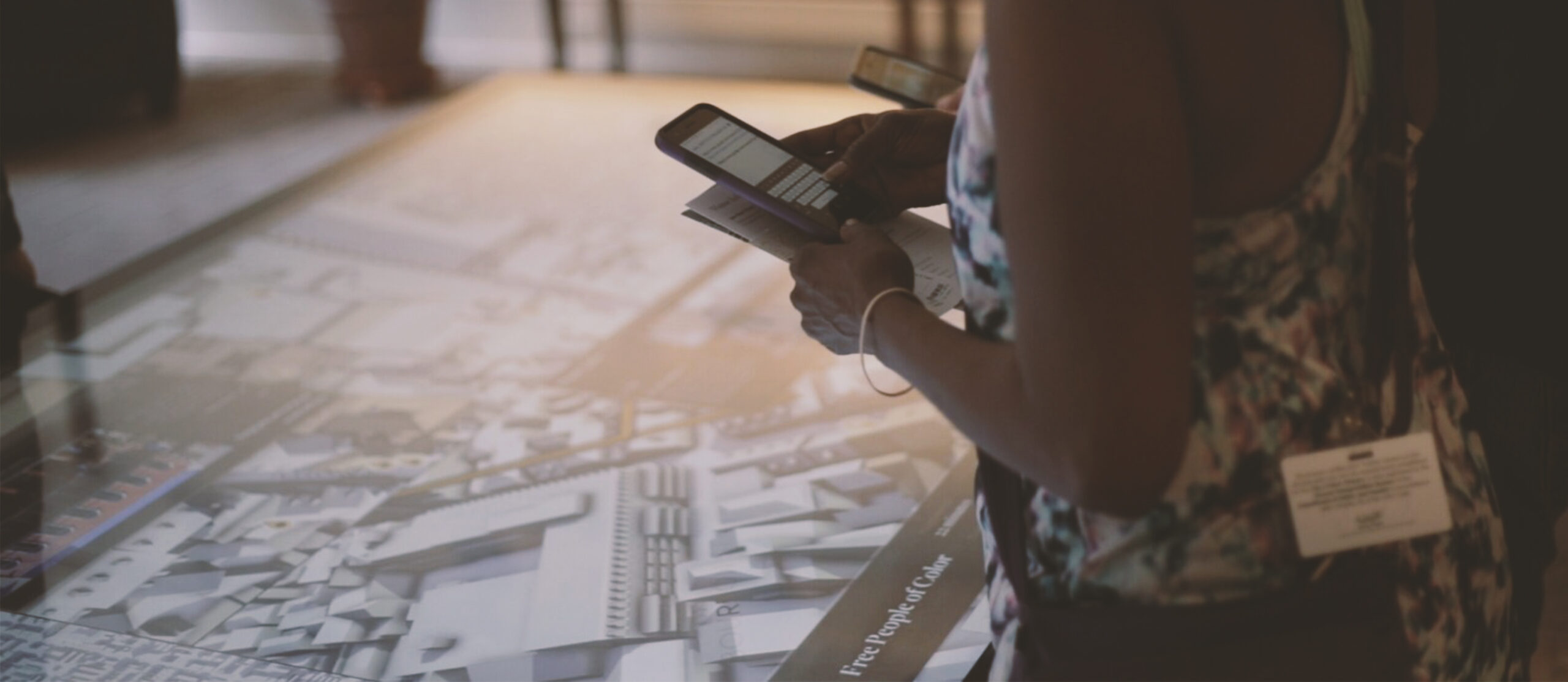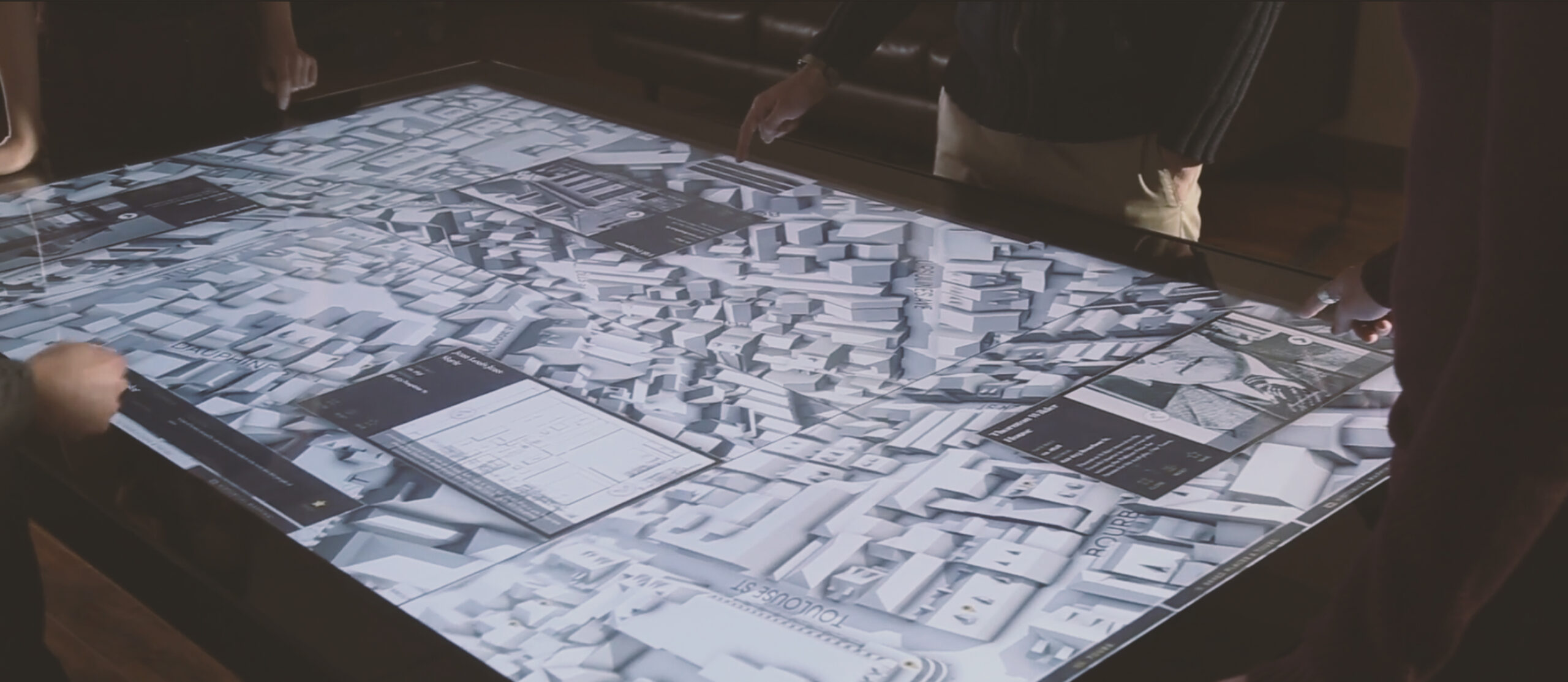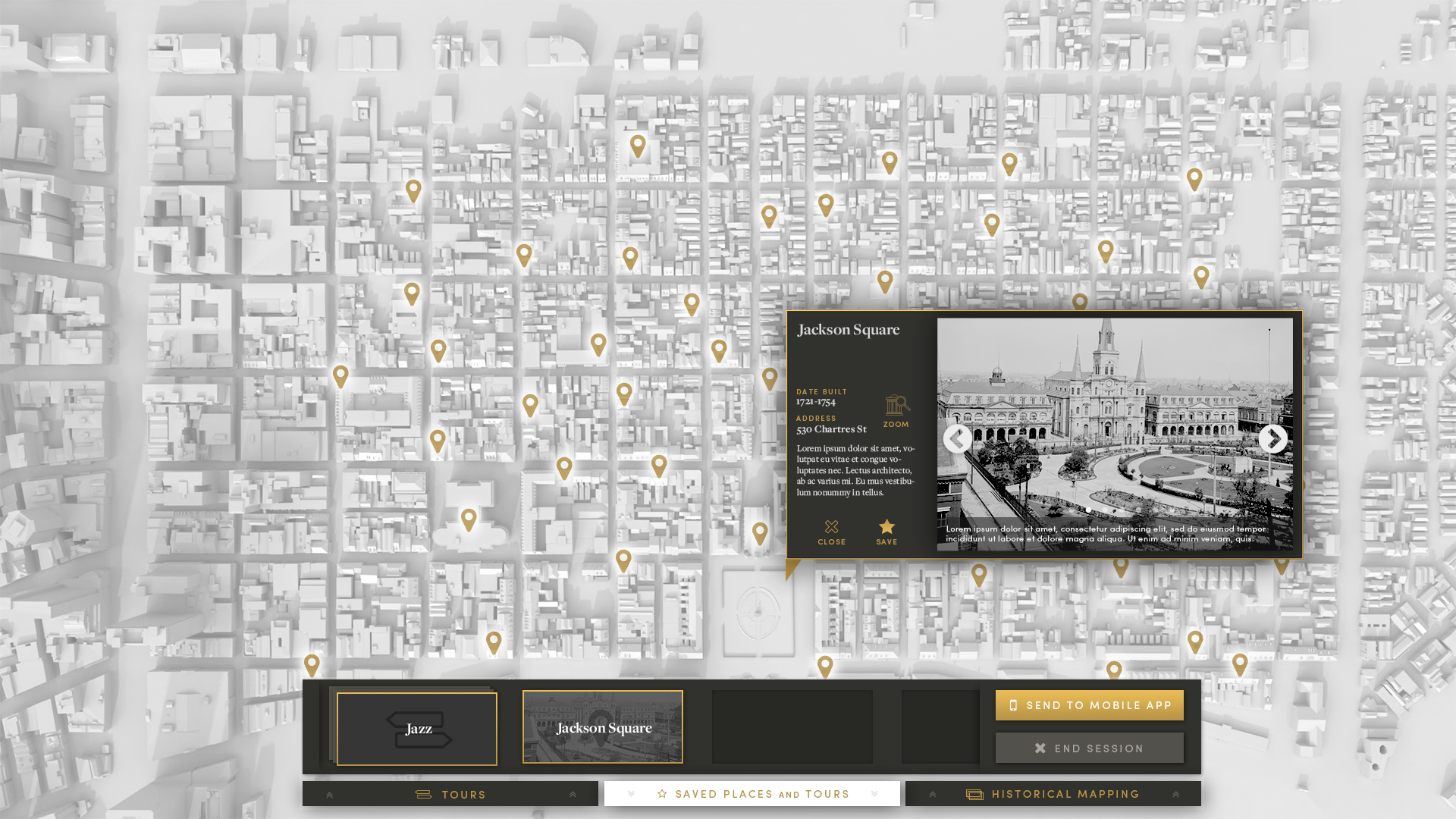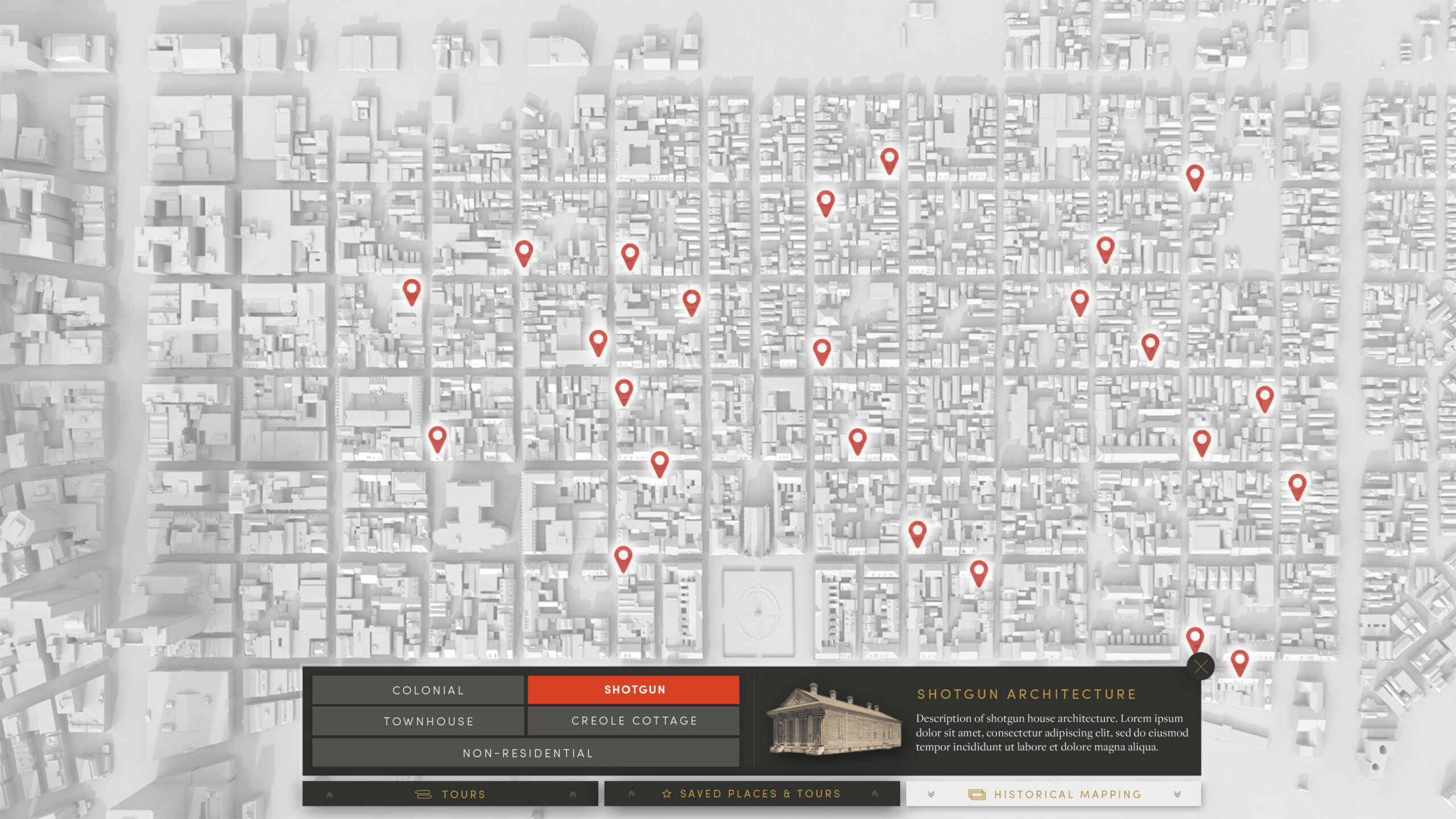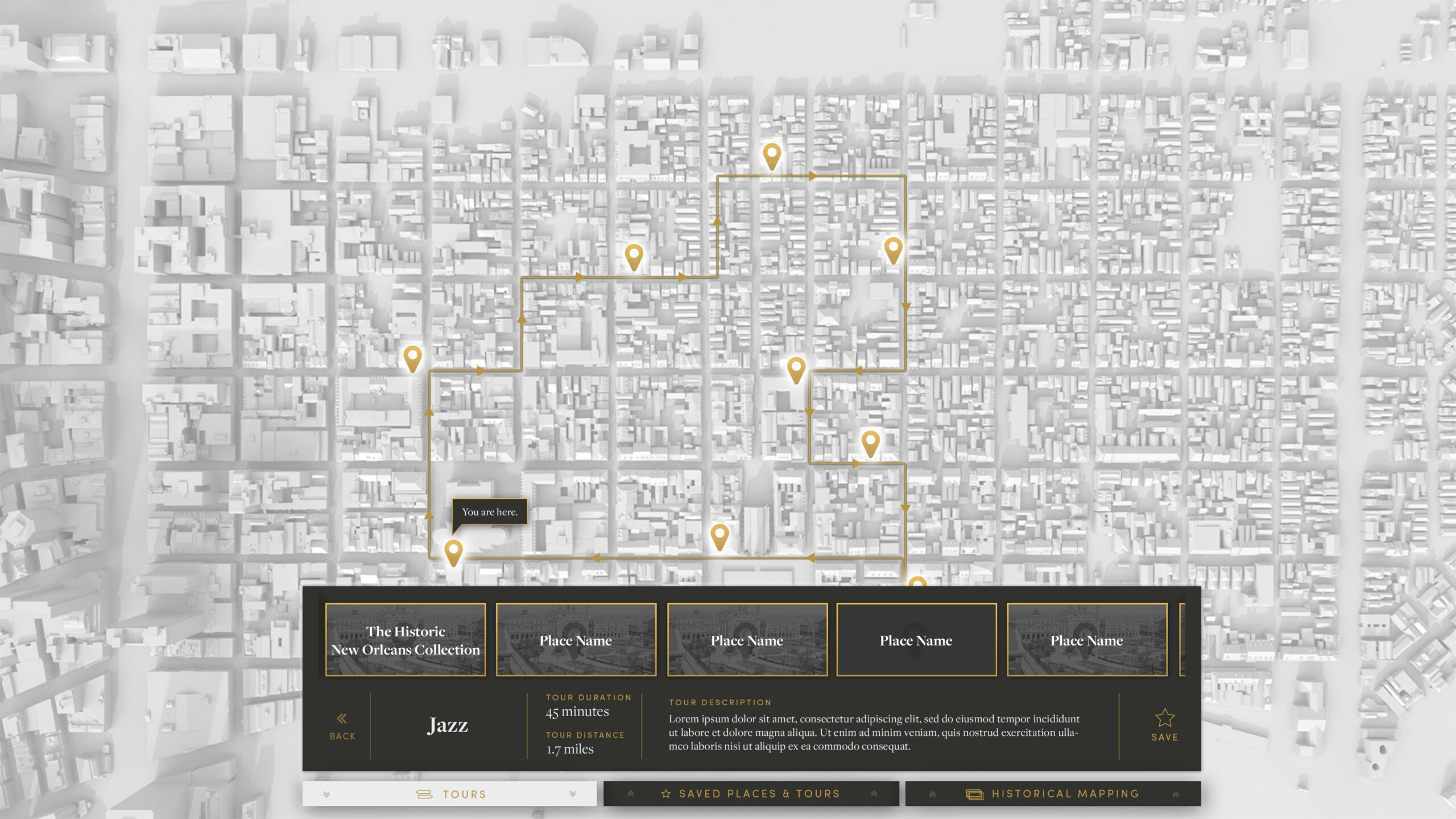The Historic New Orleans Collection
"The French Quarter at Your Fingertips"
Exploration Exhibit
UX Design Lead
Location: New Orleans, Louisiana
Time: 2017-2018
Client: The Historic New Orleans Collection
Project Description
The Historic New Orleans Collection (THNOC) is a museum, research center, and publisher dedicated to the study and preservation of the history and culture of New Orleans and the Gulf South region of the United States. It is located in New Orleans' French Quarter. The institution was established in 1966 by General and Mrs. L. Kemper Williams to keep their collection of Louisiana materials intact and available for research and exhibition to the public.
The Collection operates a museum, which includes the Williams Gallery, Louisiana History Galleries, the Williams Residence, a house museum, and a museum shop. The Williams Research Center, which opened in 1996, makes The Collection's holdings available to researchers. The holdings consist of some 35,000 library items, and approximately 350,000 photographs, prints, drawings, paintings, and other artifacts.
In 2018 the Collection would open a new visitor space within their Research Center, and commissioned an interactive exhibition that would enable "off the street" visitors to engage with the Collection's archives, and then take that knowledge back out on the street via curated walking tours. The exhibit would consist of a large interactive touch table, and a companion mobile app that interfaced with the table application.
The client was interested in a few key concepts that they wished to see implemented:
- The table application would be running on an 86' 4K screen, and should be usable for more than one person.
- Visitors should be able to explore a 3D model of the French quarter, discovering places of interest based on curated categories.
- The Collection had a series of historical maps that they wanted to overlay onto the 3D model.
- The table application should enable visitors to compile custom places-of-interest lists and load them into a companion mobile app which would create a turn-by-turn walking tour from those lists.
- Predetermined walking tours curated by the Collection should be available on the table application as well as the companion mobile app.
The primary challenge was maintaining all this functionality while making the application quickly digestible and attractive for tourists walking in off the street who may not have planned long dwell times in the museum space. Starting with a 3D model of the French Quarter, which was immediately explorable upon approaching the table, provided an engaging hook for visitors that invited deeper engagement simply through its visuals and depth. Standard modes of touch interaction for navigating a map were employed, to avoid too many tutorial barriers that would test visitor attention spans, and additional functionality and content areas would reveal themselves as the visitors interacted with the map.
The table application could host four different visitors at once, each with their own interactive viewport on the map. Visitors could discover places of interest curated by the Collection and view photos, read history, and explore the significance of famous locations. They could browse through different categories of architectural styles unique to the French Quarter, as well as unique categories curated by the Collection such as buildings owned by Free People of Color. Finally, visitors could overlay historical maps that visualized what has changed (but mostly what hasn't) about the urban design of New Orleans' most famous district. All this was accomplished with a simple menu bar at the bottom of each visitor viewport.
The prompt and instructions to download the mobile app were given if the visitor wished to take their personal places of interest with them on a custom walking tour. A simple QR code scan would open the app for download on their phone, both on the Google Play Store or Apple App Store.
(c) 2025 Joseph Donovan Design
